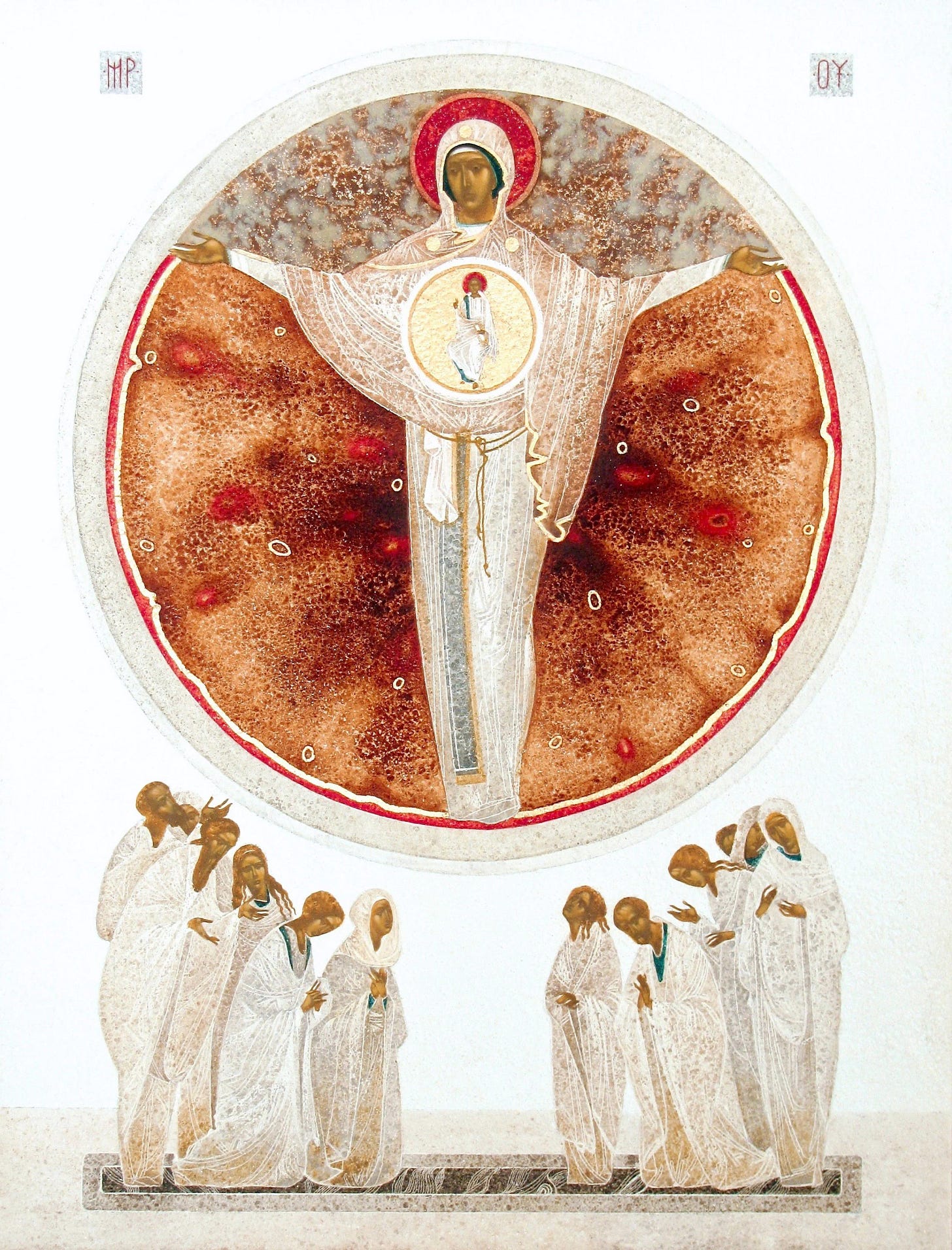In the name of the Father, Son, and the Holy Spirit- Mother of us all
God and Gendered Language
On the liturgical calendar, the church now rests between Pentecost and Trinity Sunday.
The triune name of the true God reminds believers that there is no other God than the God who has identified himself with the particular history he has made with Israel and her servant Jesus. The God of Israel is the Father who raised that Son from the dead in their Spirit.
“Trinity” thus names an historical record.
More pragmatically, Trinity also serves as a linguistic rule, enabling Christians to speak of God as the scriptures do. God is Father not generically but because Jesus addressed HaShem as Abba— Daddy. God is this Son because the Father raised him up from death into his own life. God is the Holy Spirit because the Son promises to send the Paraclete as his own abiding presence. Just so, the way the Bible speaks of God presupposes that God is a community within Godself.
The Athanasian Creed has long supplied the basic pattern for Christian speech about God:
The Father is God, the Son is God, the Holy Spirit is God, but there are not three gods, only one God.
The three are one because of a rule articulated by Augustine, Opera trinitatis ad extra indivisa sunt: “The works of the Trinity toward the outside are indivisible.” Another important implication of the Athanasian Creed is that the three are not separate parts of one God. And so, there are only two nouns approved nouns for the three, persons or members. “That’s not because those words are so good,” Eugene Rogers writes, “It’s because all the other words are worse.” Father, Son, and Spirit are three persons not three parts.
The Triune God is three whos in one what.
Christians address God as three-person’d because scripture so speaks of God. Easily the most important verse in scripture about the Trinity, Romans 8.11 makes plain the trinitarian shape of salvation, “If the Spirit of the One Who raised Jesus dwells in your mortal bodies, you too will be raised from the dead.” Rogers recommends reflecting on this promise in reverse.
You too will be raised from the dead— this is salvation.
You will be raised from the dead if the Spirit dwells in your mortal body— salvation, like prayer, begins with the Spirit.
The Holy Spirit thus connects us to the One who raised Jesus, i.e., the Father.
The result is Christ-likeness.
Scripture then gives us no other way to name God but this three fold narration.
Needless to say, this triune name is also clearly gendered.
Given the way this gendered language has been— and continues to be— misused by the church and her leaders, it’s important to understand what they ancient church took for granted. For starters, unlike the pagan gods the God of the Bible creates ex nihilo, without using any preexisting material; therefore, by definition God cannot correspond to any human or created category.
Deus non west in genre, the ancient church said, God is not in any category.
The ancient principle yields a contemporary application, God is not in a gender.
Keep reading with a 7-day free trial
Subscribe to Tamed Cynic to keep reading this post and get 7 days of free access to the full post archives.




